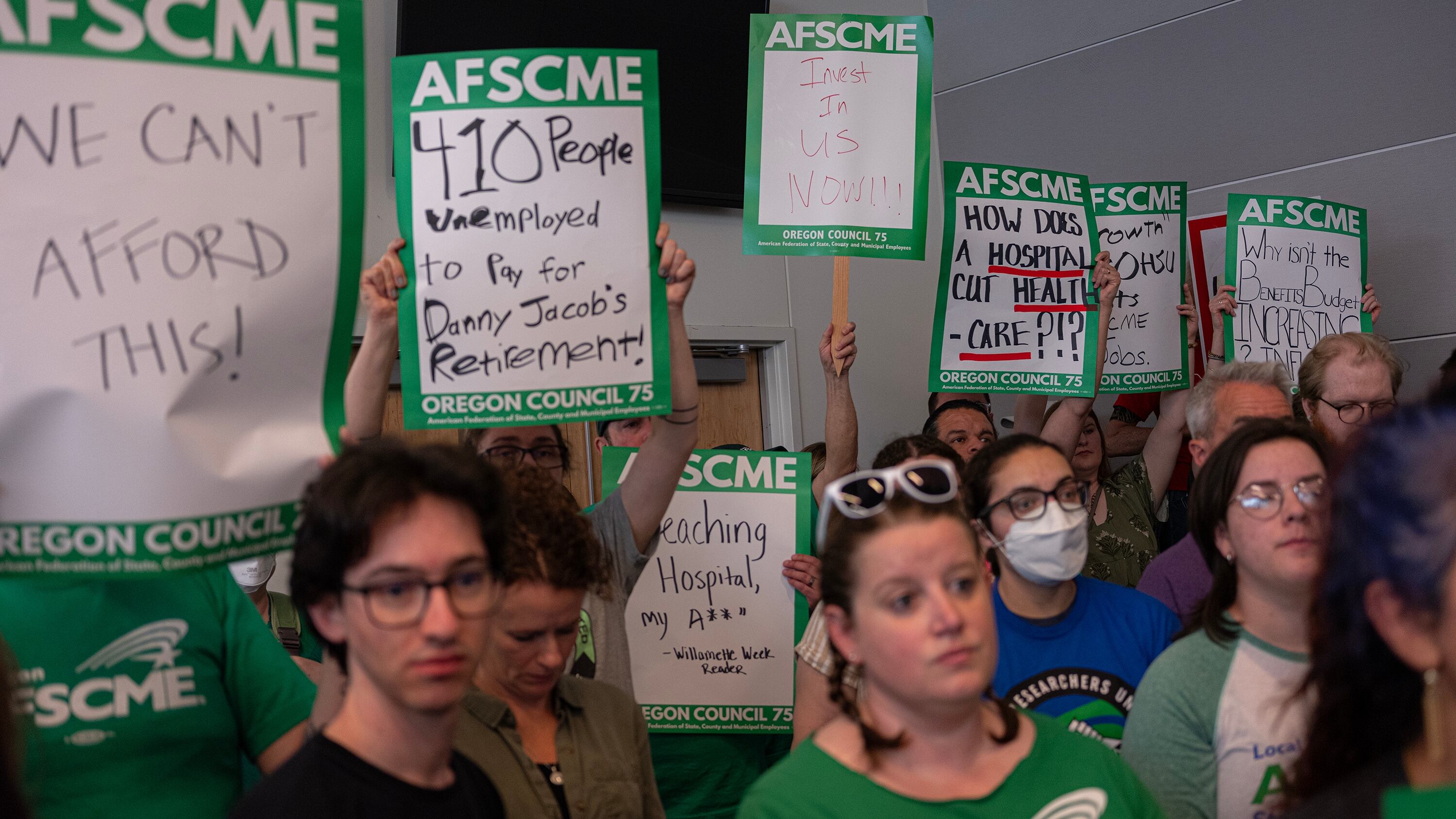Unionized researchers at Oregon Health & Science University have voted to authorize a strike if they don’t get increases in wages and benefits that they’ve been seeking for nine months.
The American Federation of State, County and Municipal Employees represents about 250 researchers in a year-old union called PostDoc Workers United, who have completed doctorate degrees and are doing research in their field at OHSU. The vote means that the union can give OHSU a 10-day notice and then strike.
The vote comes at OHSU pursues a merger with Legacy Health. Doctors and other workers at Legacy have been unionizing since the deal was announced last August, fearful that they will lose their jobs as the combined entity seeks to slash costs. OHSU has been cutting workers already because of a stubborn gap between revenue and expenses.
Postdoc researchers, many of them from outside the U.S., provide a low-cost, high-talent labor pool to institutions like OHSU. AFSCME leaders say their post-doc members helped OHSU win a record amount of research grants last year.
“We are standing together for better pay, better benefits, and better working conditions. Our work helped OHSU get a record $600 million in research grants last year, but they refuse to offer us a penny above a nationally set minimum wage that doesn’t recognize the cost of living in Portland,” says Paige Arneson-Wissink, a pancreatic cancer researcher. “What happens next is up to OHSU. If the executives don’t come to the table with a better offer that shows respect and recognition of the work we do every day, we will strike.”
Wagewise, OHSU has so far refused to offer anything above the $61,008 a year set by the National Institutes of Health, AFSCME said, an amount that doesn’t cover the cost of living in the Portland metro area. The University of Washington in Seattle pays a minimum salary that is $10,000 higher than the minimum offered at OHSU, the union said.
“The salary disparities at OHSU are extreme and unfair,” AFSCME said in a press release. “President Dr. Danny Jacobs gets paid in two weeks about what a postdoctoral researcher earns in a year and he was just granted a shocking $700,000 in additional retirement benefits. Meanwhile, the postdoctoral researchers who are working on finding cures for cancer and other serious diseases are struggling to keep up with the basic costs of living in one of the most expensive communities in the country.”
Among the union’s other demands are time off for postdocs to renew visas, which often requires leaving the country for a period of time and then returning. They also want to be paid as employees, not contractors, so they can qualify for paid leave in Oregon.
OHSU said the talks have been productive.
“Since the OHSU and PostDoc Workers United bargaining teams began meeting in September, they have reached many substantive tentative agreements, including policies on intellectual property rights, discipline and layoff processes, performance assessment and more,” OHSU said in a statement to WW.
In line with NIH guidelines, OHSU postdocs got an 8% wage increase recently, OHSU said.
“Following the strike authorization vote by PostDoc Workers United, it is important to note that this is a normal part of the bargaining process,” OHSU said. “A strike has not been declared, might not be declared, and OHSU and AFSCME continue to bargain.”

